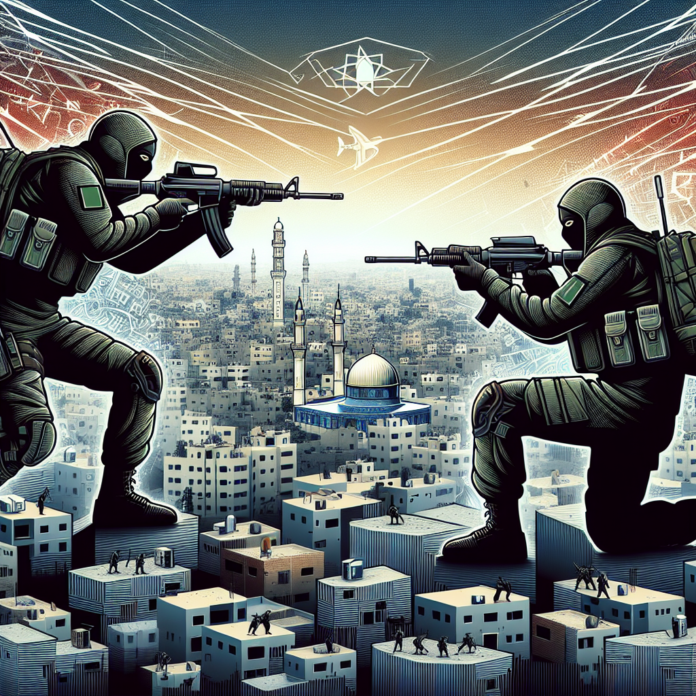Hamas Weakened but Adapts to Guerrilla Tactics Amid Israel Conflict
In a recent article, it has been reported that the terror group Hamas has suffered significant losses, rendering it too weak to engage in prolonged battles against the superior Israeli armed forces. This has limited its ability to defend its coastal stronghold conventionally. Despite this, Hamas, heavily embedded among civilians in Rafah, is expected to transition to insurgency tactics following the fall of its conventional forces, highlighting the group’s adaptability in resistance.
From Israel’s Intelligence HQ in Herzliya, a senior official emphasized the necessity of dismantling Hamas brigades amidst substantial international pressure to cease operations. The official indicated that many hostages are believed to be in Rafah. Amid these developments, Israeli Prime Minister Benjamin Netanyahu faces pressure to agree to a ceasefire that would result in the release of 124 hostages. However, Hamas has rejected a US-backed proposal, demanding the withdrawal of the IDF from Gaza and the right to retain their weapons instead.
The senior official clarified that Israel does not intend to occupy Gaza post-operation but warned of a challenging campaign against guerrillas refusing to surrender. Images accompanying the report illustrate the ongoing conflict, including Israeli soldiers in Gaza, Palestinians in the aftermath of attacks, and protests in London calling for the return of Israeli hostages.
The article further details that Hamas’s military capabilities have been significantly reduced, with estimates suggesting the group’s forces have halved since Israel launched its offensive. Still, about 7,000 to 8,000 fighters are believed to remain in Rafah, representing Hamas’s last significant bastion of resistance. Despite its weakened state, Hamas continues to control large parts of Gaza, with its leadership and arsenal largely intact, partially due to a vast network of tunnels known as the “Gaza Metro.”
US President Joe Biden has stated that Hamas no longer possesses the capability to launch large-scale attacks similar to those of October 7. However, even the possibility of smaller scale infiltrations remains unacceptable to Israel, highlighting the ongoing tension and the complex nature of the conflict.
The article concludes with discussions on the future governance of Gaza, indicating that the Palestinian Authority is not considered a viable option by Israel due to its alleged support for terrorism. The situation remains complicated, with no clear resolution in sight, underscoring the complexity of the conflict and the challenges of achieving lasting peace in the region.

